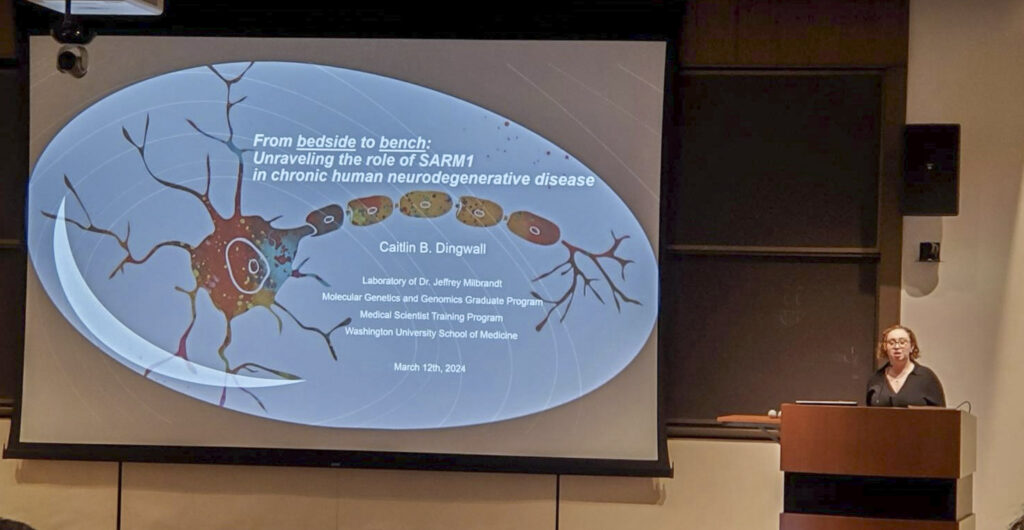Each year the O’Leary Competition acknowledges the most original and important accomplishments in Neuroscience research at WashU by a predoctoral student or postdoctoral fellow. This year, Caitlin Dingwall, an MD/PhD student in the Milbrandt Lab won the prize along with Yun Chen, a graduate student in the Holtzman Lab! Caitlin and Yun will each receive a cash award of $1,000. The applications this year were outstanding across the board, showcasing the incredible neuroscience research here at WashU!

The title of Caitlin’s talk was “From bedside to bench: Unraveling the role of SARM1 in chronic human neurodegenerative disease“.
O’Leary Prize winners are then eligible to be invited back later in their careers to serve as a guest judge of the prize finalists and to deliver the O’Leary Lecture on the day following the prize competition.
Caitlin is the 4th Milbrandt lab trainee to be awarded the O’Leary Prize.
Past Milbrandt lab awardees include:
2019: Kow Essuman, MD, PhD, currently Neurosurgery Resident Physician at Massachusetts General Hospital

2014: Josiah Gerdts, MD, PhD, currently Assistant Professor at UCSF, Department of Neurology

1996: Paul Kotzbauer, MD, PhD, Professor of Neurology, Washington University School of Medicine

Featured in this article:
Milbrandt Lab

The Milbrandt Lab studies the biological function of the GFL family of neurotrophic factors (GDNF, neurturin, persephin and artemin) that constitute the ligands for the Ret tyrosine kinase receptor, which is mutated in multiple endocrine neoplasia syndromes as well as thyroid cancers. We are characterizing mouse models lacking components of this ligand-receptor family, and we are investigating the downstream signaling events mediated by Ret activation. We are also studying the role of several genes, including Egr1, Nab2, a homeodomain protein Nkx3.1 and the tumor suppressor PTEN, in the development and progression of prostate cancer. We are characterizing mouse models of prostate cancer that we have developed and are using microarray screens and other functional genomics techniques to identify additional gene products that play a role in this disease.
